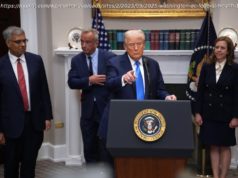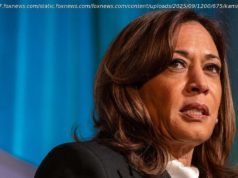President Donald Trump’s chief economist was grilled by lawmakers on the administration’s trade policy on Wednesday amid rising concern on Capitol Hill about the potential negative impacts of new steel and aluminum tariffs which have been put forward by the White House. Kevin Hassett, chairman of Trump’s council of economic advisors, suggested during an appearance before the Joint Economic Committee that the supposed national security benefits of Trump’s soon-to
President Donald Trump’s chief economist was grilled by lawmakers on the administration’s trade policy on Wednesday amid rising concern on Capitol Hill about the potential negative impacts of new steel and aluminum tariffs which have been put forward by the White House.
Kevin Hassett, chairman of Trump’s council of economic advisors, suggested during an appearance before the Joint Economic Committee that the supposed national security benefits of Trump’s soon-to-be finalized tariffs against foreign steel (25 percent) and aluminum (10 percent) may outweigh costs to American businesses and consumers.
Trump will use Section 232 of the Trade Expansion Act to implement the tariffs absent congressional approval, arguing that Chinese steel and aluminum imports represent a threat to national security. Republicans in Congress have questioned the validity of this reasoning, because Trump has said the tariffs could apply across the board, which would harm Canada—the top exporter of steel and aluminum to the United States—as well as other close trading partners and allies far more than it would impact China.
Asked by JEC ranking member Sen. Martin Heinrich why the White House would prioritize punishing Canada over China by considering implementing the tariffs unilaterally, Hassett answered, “You know, I’m not the person who sets the schedule for which moves we make when.”
Republicans on Capitol Hill have embarked on an effort to convince Trump to exempt some countries from the new tariffs and to target China more specifically, in order to minimize the possibility of sparking a trade war, which could hurt American businesses and consumers. White House press secretary Sarah Sanders suggested on Wednesday afternoon that there may be “carve outs” included for countries such as Canada and Mexico in the final directive.
“President Trump is very, very serious when he says that he’s a free trader and that he’s pursuing symmetry and reciprocity,” Hassett told the panel.
Illinois Republican Darin LaHood pressed Hassett on that claim, asking the economist to point to any policy decision by the White House over the past 14 months that would support the notion that Trump is on the side of free trade.
Hassett hedged, pointing to current negotiations of trade deals such as the North American Free Trade Agreement, which Trump has repeatedly threatened to abruptly pull out of, as potential areas for improving free trade if negotiators are successful.
“Right. Well, I think that, uh. What’s happening now is that there’s a massive amount of work negotiating trade deals and trying to improve them, and to make them more symmetric and reciprocal,” Hassett said. “If those deals are successful, then they would certainly improve free trade.”
LaHood, a firm believer in free trade from an agricultural district, asked Hassett if pulling out of NAFTA is a recipe for prosperity. Hassett evaded the query, saying instead that he believes “there are a lot of benefits that can be had from improving the symmetry of our treatment” from trading partners.
LaHood continued, asking Hassett another straightforward question: “Who wins in a trade war?”
Hassett offered no clear answer to that question either, but said he thought the global economy would be improved “if our trade partners move their trade policies towards ours,” noting that America has lower tariffs than most nations.






